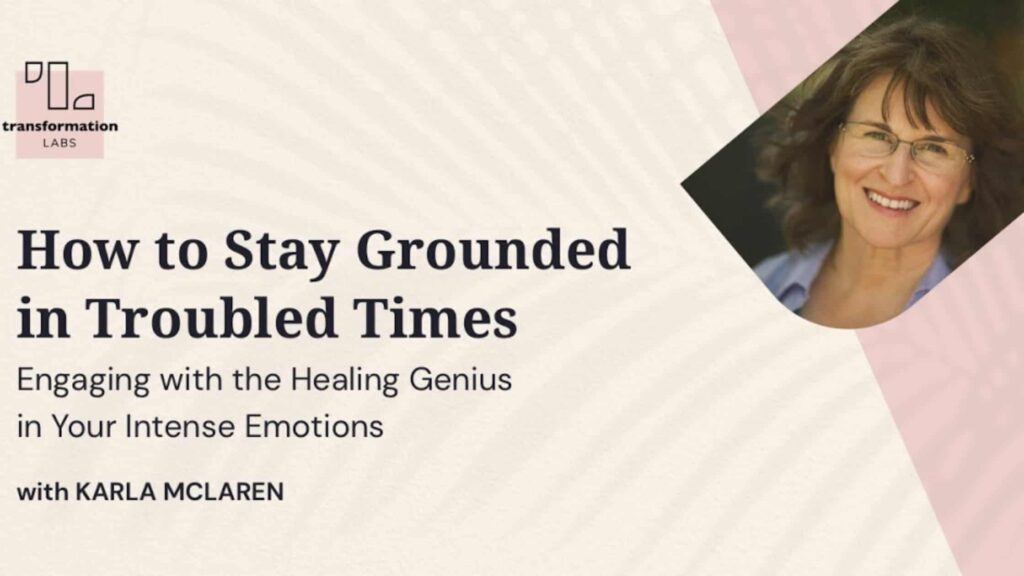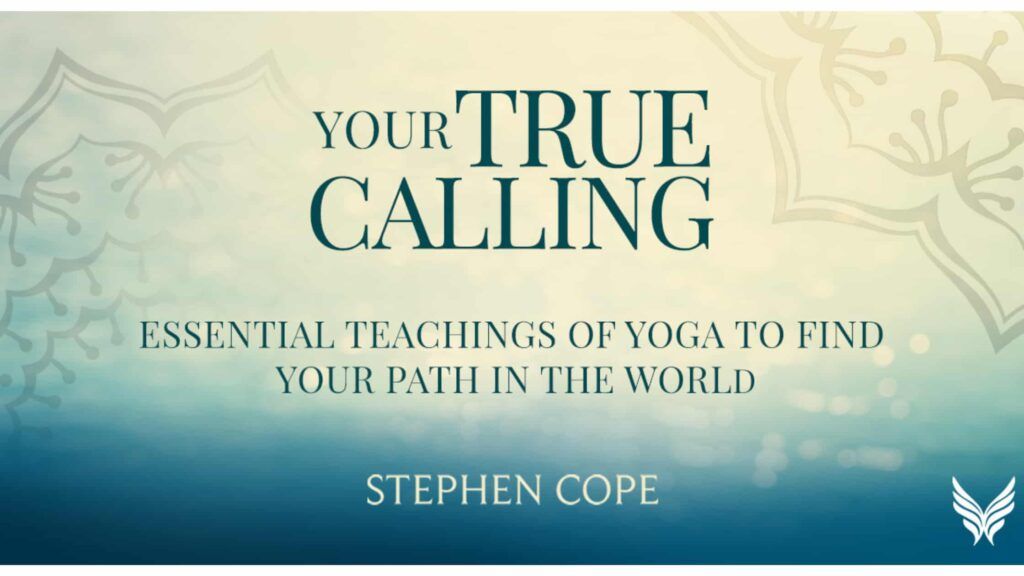What Happens After Enlightenment? Does life become an endless state of peace, or is there more to the journey? Many people believe enlightenment is the final destination, a point where all struggles disappear. But is that really the case? The truth is, awakening transforms the way you experience life, yet the world around you remains the same.
In this post, we’ll explore what happens after enlightenment. How identity shifts, how emotions are experienced differently, and whether suffering truly ends. You’ll also learn about the challenges that can arise, how relationships change, and why some enlightened individuals choose to teach while others live quietly.
1. The Dissolution of the Ego
Enlightenment changes how you see yourself. The idea of being a separate individual fades, and a deep sense of connection with everything takes its place. But what does this actually feel like?
How Enlightenment Shifts Identity
Before enlightenment, we see ourselves as a separate person with a name, history, and personality. This sense of “I” feels solid and real. But after enlightenment, this identity softens or even disappears. There is still a body, a mind, and a personality, but they are no longer seen as the core of who you are. Instead, there is just awareness, witnessing everything without attachment.
For some, this shift happens suddenly, like waking up from a dream. For others, it unfolds slowly over time. Either way, the experience is freeing, yet it can also feel strange at first. If there is no personal “I,” then who is thinking, speaking, or acting? Over time, a natural way of being emerges. One without the constant need to protect, defend, or prove oneself.
The End of Personal Attachment to Thoughts & Desires
The ego is what makes us take thoughts and desires personally. Before enlightenment, we believe every thought is “ours” and every desire is something we must chase. After enlightenment, thoughts still arise, but they are seen as passing clouds in the sky of awareness. They come and go without pulling us into reaction.
Desires also lose their grip. This does not mean an enlightened person stops eating, working, or having preferences. It simply means they are no longer ruled by cravings or fears. There is no desperate need to be liked, no fear of losing status, and no urge to seek happiness outside. Peace is found in the present moment, not in chasing external goals.
Adjusting to Life Without a Fixed Personal Identity
Letting go of the ego does not mean a person becomes lifeless or indifferent. Instead, they become more present, more open, and more natural in how they respond to life. Since there is no longer an attachment to a fixed identity, they can flow with situations without resistance.
However, this shift can come with challenges. Some people feel a sense of loss at first, like something familiar has disappeared. Relationships may change because others still see them as the same “person,” while they feel completely different inside. Over time, this settles, and life continues, but with greater ease and freedom.
Ultimately, the dissolution of the ego is not an ending but a beginning. It is the start of living with a deep sense of presence, without the constant noise of self-doubt, comparison, or fear. Instead of trying to control life, one simply flows with it.
2. Freedom from Suffering
Many people believe that enlightenment means never feeling pain again. But physical and emotional pain still exist. The difference is in how they are experienced. Suffering comes from resisting pain, not from the pain itself. After enlightenment, this resistance fades.
The Difference Between Pain & Suffering
Pain is a natural part of life. The body can get sick, injured, or tired. Difficult emotions like sadness or disappointment can still arise. But suffering happens when the mind fights against what is.
Before enlightenment, pain triggers thoughts like, “This shouldn’t be happening,” or “Why me?” These thoughts create resistance, making the pain worse. After enlightenment, pain is accepted as part of life. It still happens, but without the mental struggle. A person may feel sadness, but it passes like a wave without overwhelming them.
Why Emotions Still Exist but No Longer Trap You
Enlightened beings do not become emotionless. They still feel joy, love, sadness, or frustration. The difference is that they do not hold onto emotions or let them define them.
For example, if anger arises, it is simply noticed. It comes, stays for a while, and then goes. There is no story around it, no blame, no guilt, no identity tied to the emotion. It is just part of the moment, like a cloud passing in the sky.
This freedom allows emotions to move through naturally. Instead of suppressing or acting on them, they are simply observed. This leads to a deep sense of peace, even in difficult situations.
How Past Traumas & Conditioning Lose Their Grip
Before enlightenment, past experiences shape how we react. Old wounds create fears, triggers, and habits. But after enlightenment, these patterns lose their power.
This does not mean memories disappear. A painful past event can still be remembered, but it no longer brings suffering. It is seen as something that happened, without attaching emotions or personal identity to it.
Over time, old conditioning fades. Instead of reacting from fear or past wounds, responses become more natural and present. There is no longer a need to protect an image of the self. This allows for deeper connections with others and a greater sense of ease in life.
A New Relationship with Life’s Challenges
Freedom from suffering does not mean life becomes perfect. Challenges still arise, loss, change, and uncertainty are part of existence. But they are met with acceptance rather than resistance.
Instead of feeling like a victim of life’s events, there is a deep trust in the flow of life. Everything, even difficulties, is seen as part of the whole. This shift brings true peace, not because problems disappear, but because the struggle against them does.

Ready to Learn the Wisdom of Your Emotions?
Instead of avoiding or suppressing difficult emotions, learn to embrace and understand them with How to Stay Grounded in Troubled Times by Karla McLaren.
This course will help you decode the messages behind anxiety, anger, panic, and apathy turning them into powerful tools for personal growth.
3. The Paradox of Ordinary Life After Awakening
Enlightenment is often imagined as a mystical state, far removed from daily life. But in reality, life after awakening can look surprisingly normal. The world remains the same, yet the way it is experienced changes completely.
Daily Life Looks the Same but Feels Different
After enlightenment, many external aspects of life remain unchanged. People still eat, work, talk, and take care of responsibilities. But internally, everything feels different. There is no longer a sense of struggle, no constant mental noise, and no need to chase happiness.
The simplest activities; walking, drinking tea, or watching the rain become deeply fulfilling. There is no boredom because the present moment is enough. Each moment is experienced fully, without thoughts about the past or future pulling attention away.
How One Engages with Work, Relationships & Responsibilities
Enlightenment does not mean withdrawing from life. Many awakened individuals continue with their jobs, families, and social roles. But there is a shift in how they relate to these things.
Work is no longer about status, achievement, or future rewards. It is simply an activity happening in the present. Relationships are no longer based on need or attachment, but on genuine connection and love. Responsibilities are carried out without stress because there is no internal resistance.
There is also a deep acceptance of life’s natural flow. Whether things go well or not, there is no inner struggle. Everything is met with peace, because nothing is seen as “wrong” or needing to be different.
The Shift from Seeking Meaning to Simply Being Present
Before enlightenment, many people search for meaning through career, relationships, spirituality, or personal growth. They feel incomplete, always striving for something more.
After enlightenment, this seeking stops. There is no need to create meaning because existence itself is complete. Life is not about achieving or becoming something; it is simply about being.
This can feel strange at first. Without goals or desires, what is left? The answer is freedom. Freedom to experience life without expectations, freedom to act without attachment, and freedom to enjoy each moment as it is.
Life Continues, But Without the Inner Struggle
The paradox of enlightenment is that life goes on as usual, yet nothing is the same. The world remains unchanged, but the way it is lived transforms completely. Ordinary moments become extraordinary, not because they are different, but because they are fully seen, fully felt, and fully lived.
4. The Absence of Seeking
Before enlightenment, life often feels like a journey of searching for happiness, purpose, or something beyond the present moment. But after awakening, this search comes to an end. There is nothing more to chase, and yet, life continues.
How the Drive for Personal Growth & Achievement Fades
Most people spend their lives trying to improve themselves. They seek success, knowledge, or spiritual progress, believing these things will bring lasting fulfillment. But enlightenment reveals a surprising truth, there was never anything missing to begin with.
This does not mean that learning or growth stops. It simply means that they are no longer tied to a sense of personal lack. There is no pressure to become someone or reach a higher state. Life unfolds naturally, without the feeling of needing to “get somewhere.”
The Joy of Existence Without Craving or Striving
Seeking is exhausting because it creates a constant feeling of not being enough. Before enlightenment, happiness is often placed in the future “I’ll be happy when I achieve this or change that.” After enlightenment, happiness is no longer dependent on external things.
There is a deep contentment with whatever is happening in the present. Even the simple act of breathing, sitting, or observing the world feels complete. Life no longer needs to be different to be fulfilling.
How Spontaneity & Effortless Action Become a Way of Life
Without seeking, actions become more natural. There is no longer an internal debate over what to do or whether something is right or wrong. Decisions happen without stress because they arise from the present moment, not from personal desires or fears.
This way of being is often described as “effortless action” or Wu Wei in Taoism. It means moving with the flow of life instead of resisting it. Tasks get done, but there is no attachment to results. Conversations happen, but there is no need to impress or prove anything. Everything is done with ease because there is no internal struggle.
Nothing to Seek, Yet Life Goes On
The absence of seeking does not mean life becomes dull or empty. On the contrary, it becomes richer. Without the burden of chasing something outside of the present, every moment is deeply experienced. Instead of looking for meaning, one simply lives and that is enough.

Find Your True Calling Today
If you’re feeling stuck, uncertain about your purpose, or simply seeking deeper meaning in life, Your True Calling by Stephen Cope offers the guidance you need.
This course will help you gain clarity, overcome doubts, and take meaningful action toward a purpose-driven life. Enroll now and start your journey toward a more fulfilling life!
5. Relationships & Social Life After Enlightenment
Enlightenment changes how a person interacts with others. Relationships no longer come from need or attachment, but from a place of genuine connection. Love remains, but it is free from fear, control, or expectation.
How Relationships Change – Less Attachment, More Compassion
Before enlightenment, relationships are often based on personal desires; seeking love, approval, or security. There is an underlying fear of loss or rejection. After awakening, this fear fades. Love is no longer about possessing someone or needing something in return.
Instead, love becomes unconditional. There is a natural compassion for others, not because they fulfill a need, but simply because they exist. People are accepted as they are, without judgment. Relationships feel lighter and more open.
The Challenge of Communicating Experiences to Others
One of the biggest challenges after enlightenment is expressing what has happened. Awakening is beyond words, and most people are still caught in the mindset of seeking and struggling. Trying to explain enlightenment to someone who has not experienced it can be difficult.
Some enlightened individuals choose to stay quiet about their experience. Others share their insights, but they do so with patience, knowing that true understanding comes from direct experience, not from words alone.
Why Some Enlightened Beings Teach While Others Live Quietly
Not everyone who awakens becomes a teacher. Some feel called to share their insights and guide others. Others prefer to live simply, blending into ordinary life.
Those who teach do so not because they need followers, but because helping others comes naturally. They see that suffering is caused by misunderstanding, and they wish to point people toward the truth.
Those who live quietly do not feel separate from the world. They continue with their daily lives; working, spending time with loved ones, or enjoying nature. Whether one teaches or not, there is a deep sense of contentment. There is no need to prove anything or convince anyone of anything.
Connections Become More Meaningful
After enlightenment, relationships become more about giving than receiving. There is no longer a need for validation or approval. Love is shared freely, without expectation. Friendships may change, but the connections that remain are deeper and more authentic.
6. The Role of the Body and Mind After Awakening
Enlightenment transforms how the body and mind are experienced. They continue to function, but they are no longer seen as the core of one’s identity. Instead of being “me,” they are simply tools through which life unfolds.
The Body Still Experiences Pain, Aging & Death
Enlightenment does not make the body immune to sickness or aging. It still gets tired, hungry, or injured. The difference is in how these experiences are perceived.
Before awakening, pain creates suffering because the mind resists it “This shouldn’t be happening.” After awakening, pain is just a sensation, not a personal problem. It is felt fully, but there is no mental struggle.
Aging is also accepted naturally. There is no fear of growing old because there is no attachment to the body as “who I am.” Even the idea of death loses its weight. It is seen as a natural part of life, not something to fear.
The Mind Still Thinks, But It No Longer Controls
The mind continues to produce thoughts, but they no longer dominate awareness. Before enlightenment, thoughts feel like “my thoughts.” After enlightenment, they are seen as passing events, like sounds in the background.
This does not mean thoughts stop. Logical thinking, memory, and problem-solving still happen when needed. But there is no unnecessary overthinking, no endless worries about the future or regrets about the past. The mind becomes a useful tool rather than a source of suffering.
Emotions Arise, But They Flow Freely
Just like thoughts, emotions still come and go. The difference is that they are not held onto. Sadness, joy, frustration all are felt fully, but they pass like waves in the ocean.
There is no suppression or avoidance. If sadness arises, it is experienced without resistance. If joy arises, it is enjoyed without clinging. Every emotion is welcomed, but none define the person experiencing them.
The Body & Mind Become Instruments, Not Identities
After enlightenment, the body and mind continue their natural roles, but they are no longer mistaken for the true self. Life is lived through them, but without attachment. This brings a sense of lightness and freedom. Everything functions as before, but without struggle or resistance.
7. The Potential Pitfalls After Enlightenment
Enlightenment brings deep peace and clarity, but it does not mean life is free of challenges. Some difficulties may still arise, especially in how an enlightened person relates to the world and others. Recognizing these pitfalls can help maintain balance.
The Risk of Detachment from Everyday Life
After awakening, the mind no longer clings to desires, fears, or ambitions. This freedom can sometimes lead to a sense of detachment. Some enlightened individuals may feel uninterested in work, relationships, or daily activities.
While there is no longer a need to seek fulfillment in these things, they still have value. Enlightenment does not mean withdrawing from life. It means engaging with life fully, but without attachment. Finding a balance between stillness and participation is important.
The Challenge of Relating to Others
Most people live with constant mental noise, desires, and struggles. After enlightenment, this noise is gone. This can make it difficult to relate to those who are still caught in the cycle of seeking and suffering.
Some may feel lonely or misunderstood. Others may struggle to communicate their experience. However, this does not mean disconnecting from people. Instead, it calls for patience and deep compassion. Engaging with others from a place of understanding rather than judgment helps maintain meaningful relationships.
The Ego’s Subtle Return
Even after enlightenment, old ego patterns can sometimes reappear. There may be moments where the mind tries to take ownership of awakening, thinking “I am enlightened,” or feeling superior to others.
This is a common trap. True enlightenment is egoless. The moment a person believes they have “achieved” something, the ego has subtly returned. Staying humble and remembering that enlightenment is not a personal accomplishment keeps one grounded.
The Illusion That “Nothing Matters”
Since enlightenment removes attachment to desires and fears, some may fall into the belief that nothing in life matters. This can lead to indifference toward personal growth, relationships, or the well-being of others.
However, true enlightenment does not lead to apathy. It brings a deep love for life not because life needs meaning, but because existence itself is a miracle. Living with presence, kindness, and joy is natural when one sees the beauty of each moment.
Awareness Helps Avoid These Pitfalls
Even after awakening, challenges can arise. But with awareness, they do not become problems. Recognizing these potential pitfalls allows one to move through them with wisdom. Instead of being trapped by them, they become part of the ongoing unfolding of life.
Final Thoughts
Enlightenment is not the end of the journey, but a new beginning. It transforms how we experience life, relationships, and ourselves. While the challenges of daily living continue, they are met with greater ease, peace, and clarity. The absence of seeking, the dissolution of the ego, and the deep sense of freedom all contribute to a life lived more fully in the present moment.
However, even after enlightenment, the path remains dynamic. There are lessons to be learned, pitfalls to navigate, and growth to be had. The key is to embrace the journey with open awareness, understanding that the process of awakening continues to unfold with each moment. Through this, life becomes richer, more connected, and more deeply meaningful; simply because we are awake to it as it is.

Ready to Begin Your Journey to Enlightenment?
If you’re looking for a practical, science-backed approach to meditation and awakening, The Science of Enlightenment is a great place to start.
With step-by-step guidance, you’ll gain clarity, overcome meditation challenges, and build a strong practice.

